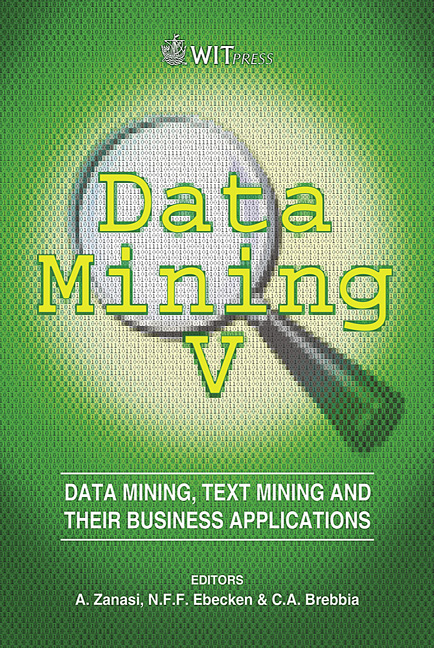An Algebraic Approach To Defining Rough Set Approximations And Generating Logic Rules
Price
Free (open access)
Volume
33
Pages
10
Published
2004
Size
251 kb
Paper DOI
10.2495/DATA040171
Copyright
WIT Press
Author(s)
D. Sitnikov & O. Ryabov
Abstract
The rough set concept is a relatively new mathematical approach to vagueness and uncertainty in data. The rough set theory is a well-understood formal framework for building data mining models in the form of logic rules, on the basis of which it is possible to issue predictions that allow classifying new cases. The indiscernibility relation and approximations based on this relation form the mathematical basis of the rough set theory. The classical topological definitions of rough approximations are based on the indiscernibility relation. Unlike the classical approaches, in this paper we define rough approximations in an algebraic way. We use a set of predicates and predicate operations, which we call the approximation language. We introduce the terms \“exact upper approximation” and \“exact lower approximation” to stress the fact that there can exist a variety of approximations but it is always possible to select the approximations that cannot be improved in the terms of the approximation language. These new definitions are compared to the classical ones (which use an equivalence relation) and are shown to be more general in the sense that the classical definitions can be deduced from them if we put some restrictions on our model. The process of generating logic rules based on the exact approximations has also been considered. Logic rules are naturally obtained from predicate formulae for the exact approximations. The introduced approach allows generating logic rules quickly and efficiently since only Boolean operations with binary strings are used to produce logic formulae.
Keywords





